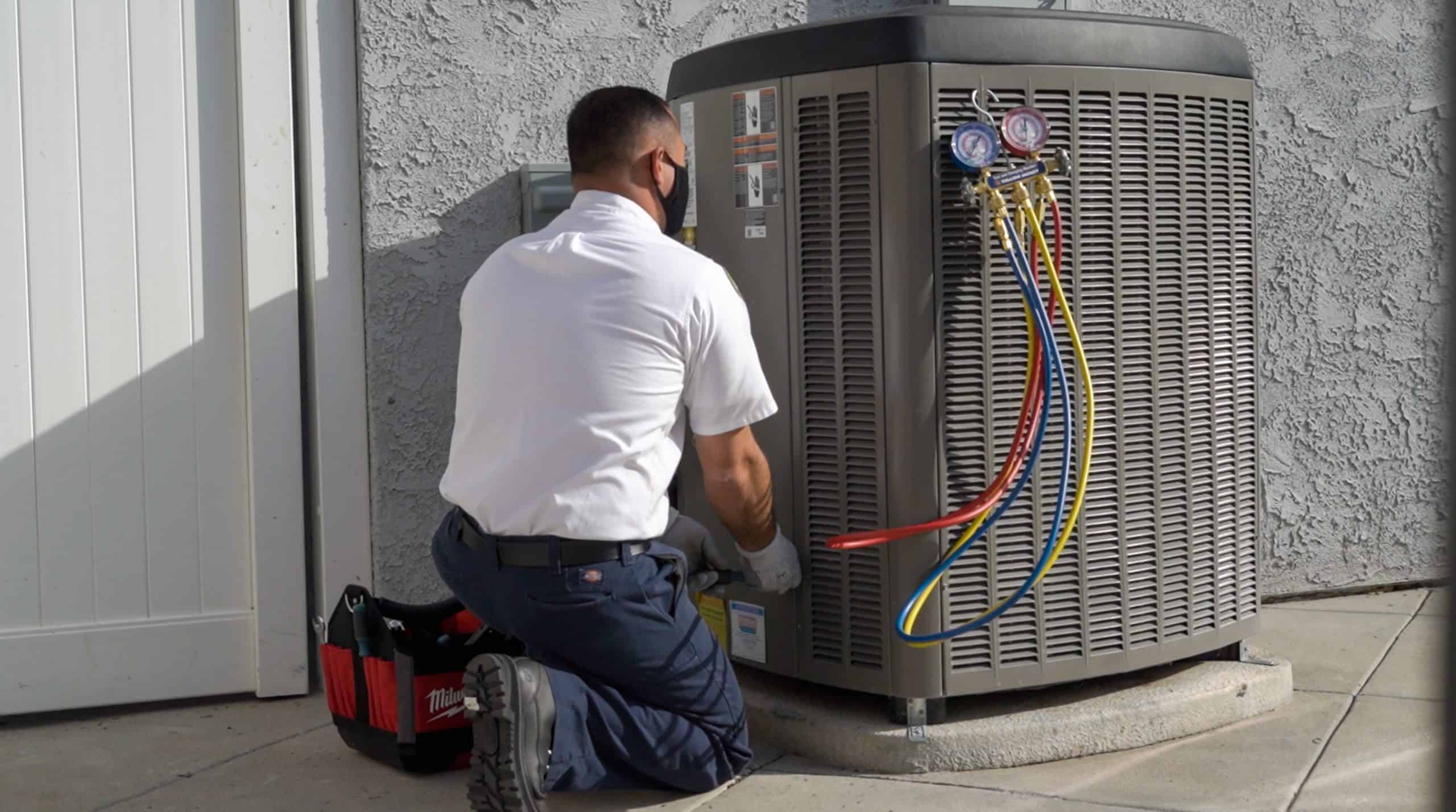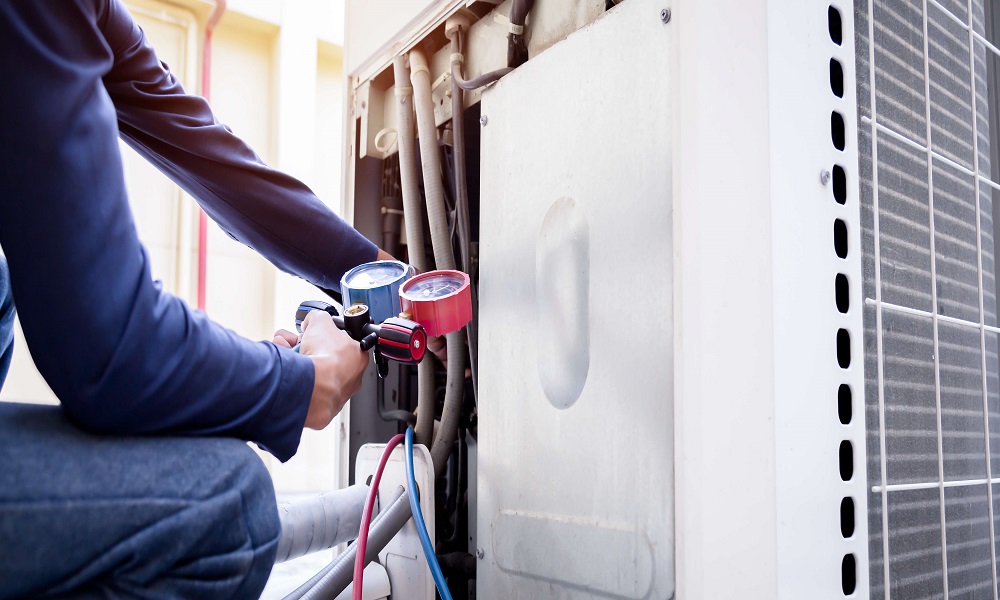Enhance Indoor Air Quality with DMAKS HVAC Expert Help.
Enhance Indoor Air Quality with DMAKS HVAC Expert Help.
Blog Article
How to Pick the Right HVAC System for Your Demands
Selecting the proper cooling and heating system is an essential choice that requires careful consideration of numerous aspects. Begin by assessing your home's size, layout, and distinct requirements, as these components determine the essential capacity and setup of the system. Furthermore, developing a spending plan that incorporates setup and long-term functional prices is crucial. As you weigh your alternatives, recognizing power performance rankings and the effects of your regional environment will certainly play a considerable function in your selection. Nonetheless, the myriad of system types offered can complicate this procedure, leading one to ask yourself which path ultimately results in optimum convenience and efficiency.
Evaluate Your Home Dimension
Assessing your home size is a critical first step in choosing the appropriate HVAC system. An A/c system that is too little will certainly have a hard time to maintain comfortable temperature levels, leading to boosted energy usage and wear on the unit.
To precisely examine your home size, determine the square video of each area, considering factors such as ceiling height and the layout. Additionally, take into consideration the insulation top quality and the number of windows, as these components impact thermal performance. Homes with open flooring plans may require different system setups contrasted to those with lots of separated spaces.
Using the Manual J lots calculation method can offer an extra accurate quote of your HVAC requires. This approach represent numerous aspects, including local environment, solar gain, and occupancy patterns. By meticulously evaluating these aspects, you can guarantee that your chosen heating and cooling system is appropriately sized, causing enhanced comfort, power performance, and long life of the equipment.
Determine Your Spending Plan
Determining your budget is a crucial action in the HVAC system selection procedure, as it sets the criteria for your choices - DMAKS HVAC. A cooling and heating system is a substantial investment, and comprehending your financial restrictions will certainly aid narrow down choices that fit within your ways
Begin by examining not only the preliminary acquisition rate yet also installation prices, which can vary substantially relying on the complexity of the job. Furthermore, think about continuous expenses such as upkeep, fixings, and energy usage. A system might show up affordable at first but can bring about greater expenses gradually if it is less effective.
It is advisable to allocate a contingency fund for unexpected expenditures that might emerge during setup or preliminary system adjustments (DMAKS HVAC). In addition, explore funding options or discounts that may be available, as these can ease the worry of in advance expenses
Eventually, having a clear budget plan enables you to involve with cooling and heating specialists more properly, guaranteeing you obtain customized suggestions that aligns navigate here with your monetary goals and home requirements. By being diligent regarding your budget, you can make informed decisions that improve comfort without jeopardizing financial stability.
Evaluate Energy Efficiency
Power performance plays a vital function in the overall efficiency and cost-effectiveness of find here your cooling and heating system. When choosing a system, it is necessary to consider its power performance scores, as these figures straight impact your utility costs and environmental impact. Look for systems with a high Seasonal Power Performance Proportion (SEER) for cooling down and a high Yearly Gas Utilization Performance (AFUE) rating for home heating. Higher rankings indicate better effectiveness, implying even more comfort for less energy usage.
In addition, take into consideration the Energy Star accreditation, which indicates that the system meets stringent effectiveness guidelines set by the Environmental Protection Company. Spending in an Energy Star-rated HVAC system can cause substantial cost savings in time, particularly in locations with severe temperature level fluctuations.
One more factor to assess is the system's dimension and capacity. An oversized or small device can cause inadequacy and enhanced energy costs. DMAKS HVAC. Proper sizing, commonly determined via a Hands-on J lots computation, ensures that the system operates at ideal efficiency


Think About Climate and Setting
When choosing a heating and cooling system, it is crucial to take into consideration the local environment and ecological conditions, as these aspects dramatically influence the system's efficiency and effectiveness. Different regions experience varying temperature extremes, moisture levels, and seasonal modifications, all of which impact home heating and cooling site needs.

In addition, neighborhood ecological elements, such as air top quality and potential allergens, must inform your option. Solutions geared up with innovative filtering modern technologies can help minimize contaminants and provide cleaner air. Furthermore, think about the energy sources offered in your location-- some HVAC systems are a lot more efficient when powered by all-natural gas or renewable resource sources.
Eventually, aligning your HVAC system option with your local environment and ecological considerations will result in boosted convenience, boosted efficiency, and reduced energy costs.
Explore System Kind and Attributes
As homeowners seek to enhance comfort and efficiency, checking out the numerous sorts of cooling and heating systems and their one-of-a-kind attributes becomes crucial. The key types of cooling and heating systems include air conditioning, heat pumps, ductless mini-split systems, and heaters. Each system offers unique advantages tailored to different requirements and choices.
Central air systems provide uniform air conditioning throughout a home, making them excellent for bigger rooms. Heatpump work as both heating and cooling options, using electrical energy to transfer heat, which can lead to reduced power costs. Ductless mini-split systems are ending up being increasingly preferred due to their adaptability and convenience of installment, permitting house owners to regulate the temperature in individual areas without extensive ductwork.

Conclusion
To conclude, choosing the proper heating and cooling system requires careful factor to consider of different variables, including home dimension, budget constraints, energy efficiency, neighborhood environment, and available system kinds. An extensive analysis of these components makes certain optimum comfort and cost-effectiveness. By complying with an organized approach, home owners can make informed choices that straighten with their particular requirements and choices, inevitably bring about boosted indoor air quality and energy cost savings.
Report this page